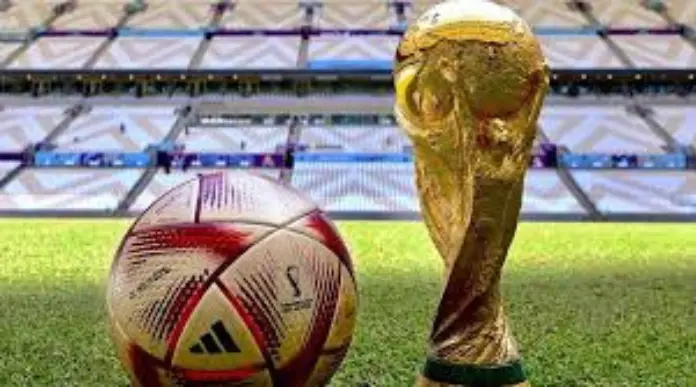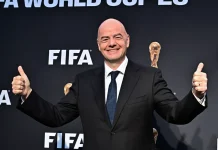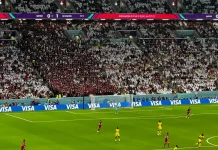In 2025, FIFA has launched a suite of sweeping reforms aimed at upholding integrity, fairness, and transparency across global football. From revising the player transfer system to expanding technological oversight during matches, the governing body is signaling a new chapter in sustainable governance. Central to these changes is the Interim Regulatory Framework on the Status and Transfer of Players (RSTP), a legal update designed to align with European Union norms while modernizing contractual procedures and dispute resolution mechanisms. Alongside these legal overhauls, technological innovations and international partnerships have become cornerstones of FIFA’s commitment to restoring credibility and enforcing fair play in the sport.
Legal Reforms Modernize the Transfer and Contract Landscape
Clarifying Contractual Disputes and “Just Cause”
The revised RSTP framework provides clearer guidelines for contractual relationships between clubs and players. Notably, it codifies the definition of “just cause” for contract termination, reducing ambiguity and limiting disputes that previously relied on subjective interpretations. The reforms also update the method for calculating compensation when a contract is breached, shifting the emphasis toward fairness and predictability.
These changes are part of FIFA’s broader goal to instill trust in the player transfer system, which has long been criticized for its lack of transparency and consistency. By setting clear legal benchmarks and promoting procedural fairness, the new rules are designed to deter exploitative practices and ensure that both players and clubs operate under equitable standards.
Streamlining Dispute Resolution
In addition to redefining contract terms, FIFA is strengthening its mechanisms for dispute resolution. The reforms aim to reduce backlog and accelerate proceedings by refining arbitration protocols and improving access to legal recourse. This legal modernization helps align football’s governance with international standards while addressing one of the sport’s most persistent pain points: delayed and inconsistent outcomes in transfer disputes.
Technological Innovation Elevates On-Field Fairness
New Game Rules Combat Time-Wasting and Promote Attacking Play
One of the standout features of FIFA’s 2025 rulebook is the enforcement of stricter in-game conduct. Goalkeepers are now limited to holding the ball for no more than eight seconds, a rule enforced by awarding a corner kick to the opposing team for violations. This measure, aimed at curbing time-wasting, reinforces the importance of continuous play and viewer engagement.
Simultaneously, adjustments to the offside rule now favor attacking players by giving the benefit of the doubt to forwards in marginal situations. This modification is expected to encourage more dynamic offensive play, reflecting FIFA’s broader strategy to enhance the entertainment value of the sport while maintaining fairness.
VAR Evolves with Coach-Initiated Reviews and Live Announcements
Video Assistant Referee (VAR) technology continues to be a pivotal element in FIFA’s strategy to ensure accurate decisions. In 2025, coaches are allowed to initiate VAR reviews, a move designed to enhance transparency and strategic fairness. Alongside this, FIFA is piloting a system of live VAR announcements—where referees will verbally explain their decisions to fans in real time.
These innovations are part of a wider effort to improve the relationship between referees, players, and spectators, creating a more informed and connected viewing experience. However, FIFA also faces the challenge of balancing these tech-driven enhancements with the sport’s fluidity and spirit, ensuring that interruptions remain minimal and justified.
Global Integrity Programme Expands to Combat Match Manipulation
UNODC Partnership Targets Match-Fixing
Beyond the field, FIFA is expanding its efforts to eradicate corruption and manipulation in the sport. Through its continued partnership with the United Nations Office on Drugs and Crime (UNODC), FIFA launched the second edition of the Global Integrity Programme in 2025. Running through 2027, the initiative focuses on preventing match-fixing and other integrity breaches through education, training, and policy guidance tailored to the needs of FIFA’s 211 member associations.
The programme emphasizes capacity building at the national level, equipping football federations with the tools and knowledge to detect and respond to suspicious activity. It also encourages the development of whistleblower protection systems and integrity hotlines, creating safer environments for reporting misconduct.
Promoting a Culture of Accountability
This global initiative reflects FIFA’s recognition that corruption is not merely a regulatory issue but a cultural one. By investing in prevention and ethical awareness, FIFA aims to shift attitudes at all levels of the sport—from grassroots leagues to elite competitions. The message is clear: integrity must be embedded in football’s DNA, not tacked on as an afterthought.
Implementation Challenges and the Path Forward
Navigating Legal Uncertainties
Despite the comprehensive nature of the 2025 reforms, FIFA’s path to full implementation is not without hurdles. Several of the regulatory changes remain interim measures, pending further review and consultation. This status raises concerns about consistency in enforcement and the risk of policy reversals under pressure from powerful stakeholders.
Additionally, the success of the legal framework will depend heavily on the ability of national football associations to incorporate and enforce these rules within their own jurisdictions. Disparities in resources, infrastructure, and governance capacity across countries could hinder uniform application, undermining the reforms’ global impact.
Balancing Innovation with Tradition
The increased reliance on technology, particularly in officiating, introduces its own set of challenges. While tools like VAR and time limits enhance accuracy and fairness, excessive reliance or poor implementation could disrupt the natural rhythm of play. FIFA must walk a fine line between embracing innovation and preserving the essence of the game, ensuring that enhancements support—not dominate—the sport.
Conclusion: FIFA’s 2025 Vision for Sustainable Football Governance
FIFA’s 2025 integrity reforms represent a multi-faceted approach to some of the sport’s most entrenched challenges. Legal modernization under the RSTP seeks to make player transfers more transparent and fair. On-field rule changes and VAR advancements aim to reinforce real-time fairness, while global partnerships like the one with UNODC address systemic corruption and match-fixing from the ground up.
Taken together, these initiatives signal FIFA’s recognition that the future of football depends on more than just goals and trophies—it requires trust, equity, and accountability. Yet, the real test lies in implementation. Effective change will demand sustained political will, consistent enforcement, and active engagement with stakeholders across the football ecosystem.
As football continues to evolve in a digitally connected, socially conscious world, FIFA’s ability to adapt while upholding its core values will determine whether these reforms succeed in transforming the sport for generations to come.













